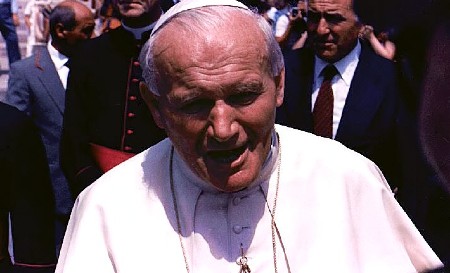We ask you, humbly: don't scroll away.
Hi readers, it seems you use Catholic Online a lot; that's great! It's a little awkward to ask, but we need your help. If you have already donated, we sincerely thank you. We're not salespeople, but we depend on donations averaging $14.76 and fewer than 1% of readers give. If you donate just $5.00, the price of your coffee, Catholic Online School could keep thriving. Thank you.Help Now >
Philadelphia
FREE Catholic Classes
A titular see in Lydia, suffragan of Sardes. The city was founded by Philadelphus, King of Pergamon (159-38 B. C. ), in the vicinity of Callatebus on the left bank of the Cogamus (Kouzou Tchai); its location was most favourable for commercial and strategical purposes. In 133 B. C. it became a Roman possession. It was subject to earthquakes, and at the time of Augustus was almost in ruins; but, quickly restored, was of commercial importance as late as the Byzantine period. Its wines were famous; its coins bore the image of Bacchus or a bacchante. On the coins of the first century the city is called Neocæsarea, under Vespasian it received the cognomen of Flavia. During the eleventh and succeeding centuries it was repeatedly captured by and retaken from the Turks until it was definitively conquered by Bajazet in 1390. In the seventeenth century it had 8000 inhabitants, of whom 2000 were Christians. To-day it has about 15,000, including 3500 Greeks. The Turks called it Ala Sheir; it is the capital of the caza of the vilayet of Smyrna, is still, on account of its fertility, an important agricultural and commercial centre; and is a railway station between Smyrna and Dinair. It possesses numerous ruins, a theatre, stadium, two walls, many Byzantine churches, etc. and has mineral springs. Christianity was introduced into Philadelphia in Apostolic times. According to the "Apostolic Constitutions" (VII, xlvi), its first bishop Demetrius must have been appointed by St. John. The apologist St. Miltiades mentions a prophetess Ammia who must have belonged to the primitive Church of Philadelphia ( Eusebius, "Hist. Eccl.", V, xvii). One of the seven letters of the Apocalypse is addressed to the Bishop of Philadelphia (Apoc., i, ii, iii, 7-13). This bishop was highly commended, and while the writer recognizes that the community is small, he tells us that the Jews who tried to disturb it were valiantly resisted by its faithful pastors. St. Ignatius of Antioch later sent to the Christians of Philadelphia an interesting letter warning them against the Jews (Funk, "Die apostolischen Vätter", Tübingen, 1901 pp 98-102). The ancient "Notitiæ" place Philadelphia among the most important suffragans of Sardes. Under Andronicus Palæologus it was raised to metropolitan rank, and has continued such among the Greeks, its jurisdiction, since the fourteenth century, extending over many neighbouring sees, later obliterated by the Turkish conquest. Among its bishops or metropolitans, of whom Le Quien (Oriens christ., I, 867 sq.) gives a very incomplete list, may be mentioned: Hetimasius, present at the Council of Nicæa (325); Cyriacus, at the Council of Philippopolis (344); Theodosius, deposed at the Council of Seleucia (359); Theophanes, present at the Council of Ephesus (431); Asianus (458); Eustathius (518); John, present at the Council of Constantinople (680); Stephanus at Nicæa (787); Michael under Leo the Armenian ; Theoleptus at the end of the thirteenth and in the fourteenth century, hymn writer, orator, and master of the famous Barlaam (P. G., CXLIII, 381 sq.); Macarius Chrysocephalas (1345) wrote homilies (ibid., CL, 227 sq.); Gabriel Severus (1577) wrote works against the Latins and resided, as did his six successors, at Venice ; Gerasimus Blachus (1679), author of numerous works; Meletius Typaldus (1685), deposed for becoming a Catholic.
We ask you, humbly: don't scroll away.
Hi readers, it seems you use Catholic Online a lot; that's great! It's a little awkward to ask, but we need your help. If you have already donated, we sincerely thank you. We're not salespeople, but we depend on donations averaging $14.76 and fewer than 1% of readers give. If you donate just $5.00, the price of your coffee, Catholic Online School could keep thriving. Thank you.Help Now >








 Daily Readings for Thursday, April 25, 2024
Daily Readings for Thursday, April 25, 2024 St. Mark: Saint of the Day for Thursday, April 25, 2024
St. Mark: Saint of the Day for Thursday, April 25, 2024 Prayer for Policemen: Prayer of the Day for Thursday, April 25, 2024
Prayer for Policemen: Prayer of the Day for Thursday, April 25, 2024

